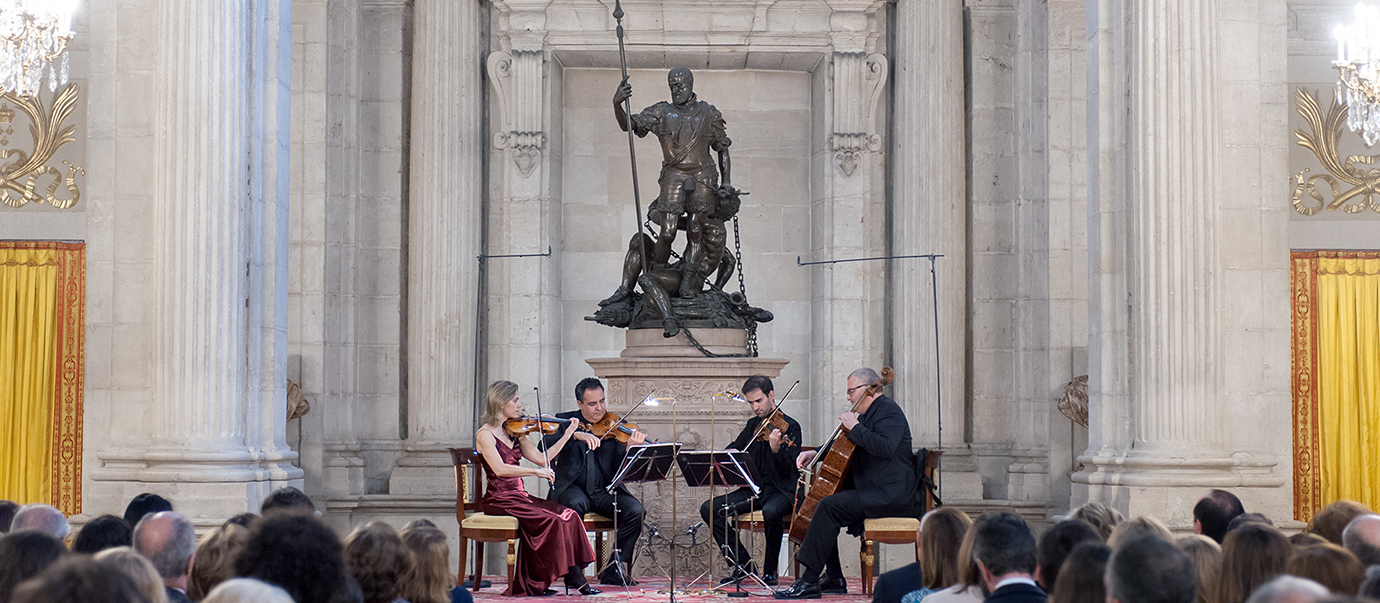Using Su Shi’s poem of the same name as lyrics and written for Peking Opera style female singer, mixed chorus and symphony orchestra, Jiang Tcheng Tse is a milestone in Qigang Chen’s composition career. In spite of his familiarity with vocal works, this is Mr. Chen’s first chorus composition. Considering the state of mind in which he wrote this, it marks a new start in his composition after he had gone through a tough passage in life and collected his thoughts and sentiments. In this sense this piece is of exceptional significance. Qigang Chen uses his signature orchestral technics in this piece. One can identify the composer by listening to it. It is not simply the traits of the sound and the colors, but also the way they merge so seamlessly into the nature of the music, leading listeners right into the realm of dreams from the very beginning.
The contrast between dream and reality, sweet memories of the past and desolation of the present, constitute the core of Su Shi’s poem, and is the reason why Jiang Tcheng Tse has two choirs: each having their own happiness, but convergence of the two producing heart-breaking sound. That’s an irrevocable sorrow, an irreconcilable conflict between Yin and Yang. A score like this is naturally demanding for the chorus, but the pitch, the rhythm, the intensity of the sound, the color and the interval all pose extra challenges to the singing. However, because it is human voice instead of instruments, the sounds would reconcile and blend even in the forceful clashes of harmonies, signifying the strong emotional bond between the living and the dead, although forever separated. We hear lingering affection that is affluent and warm, not gloomy or icy separation. This reveals the very nature and purpose of the art of chorus.
Music by Qigang Chen
Lyrics by Su Shi (1037-1101), based on his poem Jiang Tcheng Tse
Commissioned by the National Centre for the Performing Arts, the Sydney Symphony Orchestra, BBC Radio 3 and the Vale of Glamorgan Festival
World premiere in 2018
Chorus and Orchestra of the National Centre for the Performing Arts
Conductor | Lü Jia
Soprano | Meng Meng
Jiang Tcheng Tse
Ten years have we been parted:
The living from the dead —
Hearing no news
Not thinking
And yet forgetting nothing!
I cannot come to your grave a thousand miles away
To converse with you and whisper my longing
And even if we did meet
How would you greet My weathered face, my hair a frosty white?
Last night
I dreamed I had suddenly returned to our old home
And saw you sitting there before the familiar dressing table,
We looked at each other in silence,
With misty eyes shining in the candle light
May we year after year
In heartbreak meet
On the pine-crest In the moonlight!
English translation from 1947 by Lin Yutang



